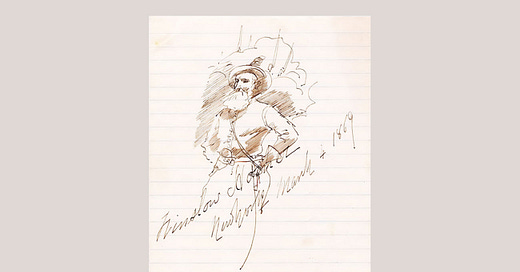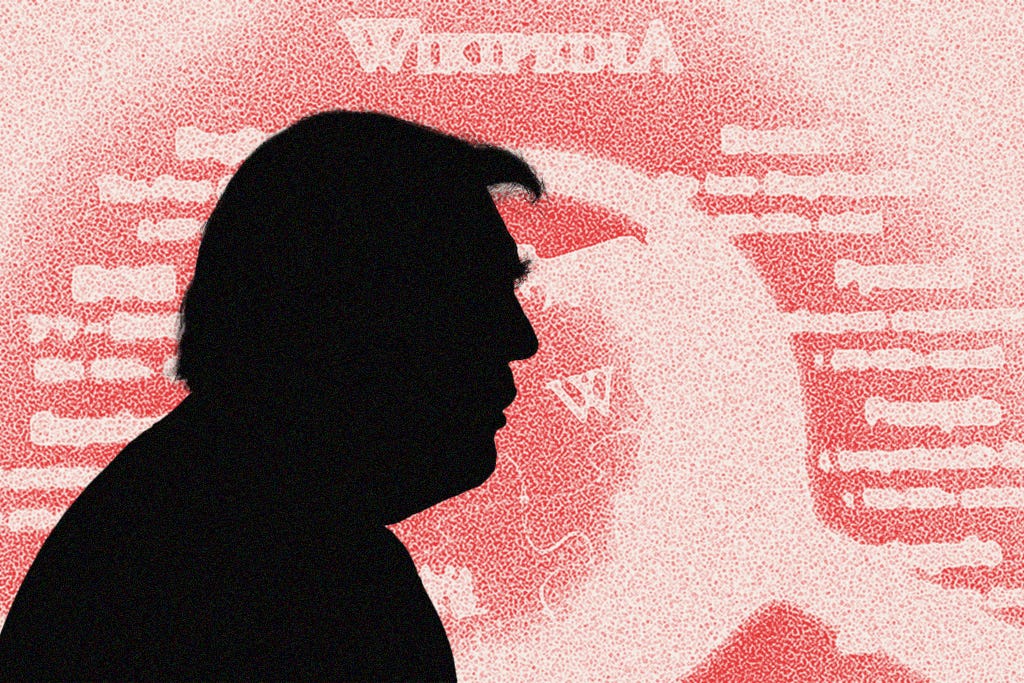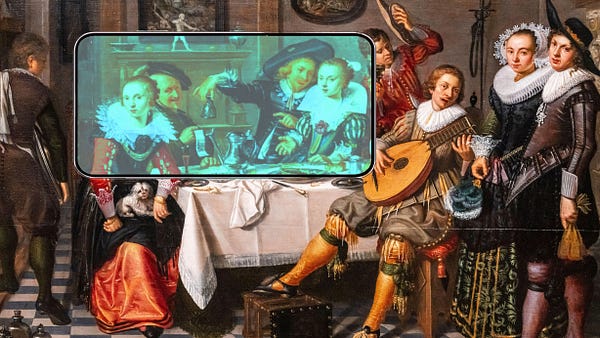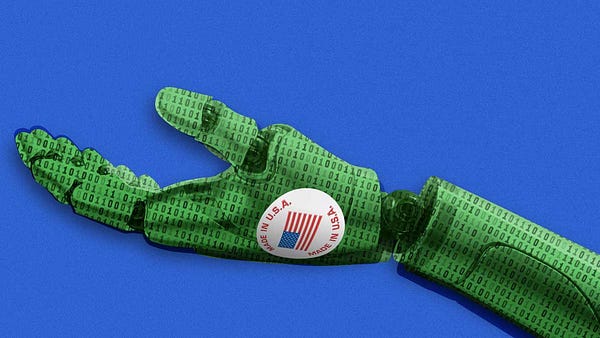
Claudia Strauss-Schulson has been running Schulson Autographs, which sells historical documents like letters signed by presidents or a doodle by Marlon Brando, for around 15 years. Strauss-Schulson, speaking to me from Millburn, New Jersey, tells me she was “flabbergasted” when she got an alert that Google—her site is optimized for the search engine, meaning would-be buyers are shown her products in their results—had flagged a small sketch of a Confederate soldier by the artist Winslow Homer as “dangerous or derogatory content.”
The alert advised: “Update your products to ensure a safe and positive experience for customers,” and went on, “Products that display shocking content or promote hatred, intolerance, discrimination, or violence are not allowed.” The note said the breach meant the sketch would be prevented from showing “in all countries,” though the work is still searchable via third parties, like the Antiquarian Booksellers Association of America.
Strauss-Schulson thinks the small sketch, which reads, “Winslow Homer, New York, March 4, 1869,” was flagged, possibly by a bot, because she labeled it “Winslow Homer Sketch of a Confederate Soldier Signed.” She has not updated her original listing and notes that the sketch is hardly hardcore Confederacy-worshipping propaganda, and far from the most shocking thing for sale online. There isn’t even a Confederate flag in the image.
“To me it looks like a universal soldier who’s looking right at you about the horrors and sadness of war,” says Strauss-Schulson.
Strauss-Schulson has a collection of Homer sketches and drawings that she’s acquired over the years. The nineteenth-century artist was born in Boston and is known for his landscape and maritime scenes. One of his most famous oil paintings, Prisoners from the Front, from 1866, likewise depicts Confederate soldiers captured by a Union general. Homer, at 25, was embedded with Union troops during the war, on assignment with Harper’s Weekly Illustrated. He’d send his drawings to the magazine’s New York office, where engravers translated his work from the field onto wood to be mass printed for the magazine’s 200,000 subscribers.
“These are the documents upon which history gets written. This would be a beautiful thing to have in a high school textbook to illustrate the Civil War,” says Strauss-Schulson, who calls the entire episode “odd.” She adds, “I know what other people sell, and this doesn’t come close.”
Suzy Weiss is a reporter at The Free Press. Read her piece “Fun Is Back,” and follow her on X @SnoozyWeiss.
To support The Free Press, subscribe today:














I see the comments and see buzz words tossed around such as "woke" "DEI," references to Orwell, and accusations of evil, counter to Google's original motto not to be.
Firstly, the clickbait title of this article is not true. Winslow Homer was not banned. One Winslow sketch was flagged, likely by a bot of course. Is this truly infuriating. Yes! Is it part of some sinister agenda? I wish. It's worse than that. It's a product of complete institutional cultural illiteracy.
If you've ever worked for one of these companies - I have to my immense regret - you'll be shocked not just by how culturally illiterate they are, but how their company culture vilifies broader cultural literacy. An applicant whose CV reflects an interest in literature, languages (the spoken kind) art, or serious music is deeply suspect.
And for reasons that once made a sort of sense. They sought dedicated tech brains. Very dedicated! And gifted - so gifted that, once upon a time, finishing university was held against applicants. I'm serious. But I'm going into the weeds.
Google isn't evil or political in any meaningful sense. They are *ignorant.* The problem now is how to insert deeper cultural knowledge and adult judgement into these organizations. Right now they have the cultural IQ of a sixth grader. That's the problem.
1984